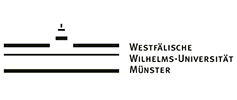The Strong State And Pancasila: Reflecting Human Rights in the Indonesian Democracy
DOI:
https://doi.org/10.31078/consrev221Keywords:
Pancasila, Strong State, Human Rights, DemocracyAbstract
The rights of every Indonesian citizens are protected by the 1945 Constitution. Does the reality matches with the normative regulations? Does democratization improves the protection of human rights especially in term of the religious freedom? We find that there is a discrepancy between the ideal written constitution and the reality. In this following essay I argue that the failure of Indonesian democratic regimes to protect human rights is the result of the lack of "stateness". The ideal of "stateness" is referring to Fukuyama idea that is "the ability of state to plan and execute policies and to enforce law". I will present the argument that the weakness of the administration cause by an ambiguity in the interpretation of the Indonesia ideology, Pancasila (the Five-Principles). This paper will firstly discuss the idea of strong state and its relation to the protection of human rights. Alongside the theoretical examination of the concept, I will discuss the weakness of democratic regimes in Indonesia to protect human rights. This will be followed by an examination of the core argument of the paper, argue that the principle cause of the state weakness lies on the ambiguity of the administration to interpret Pancasila.References
Books
Bolan, B. J. (1982) The Strugle of Islam in Modern Indonesia. Leiden: The Hague-Martinus Nijhoff.
Effendi, Bahtiar. (2003) Islam and the State in Indonesia. Singapore: ISEAS.
Feith, Herbert, and Cornell University. Modern Indonesia Project. (1962) The Decline of Constitutional Democracy in Indonesia. Ithaca (N.Y.); London: Cornell University Press.
Fukuyama, Francis. (2004) State-Building: Governance and World Order in 21st Century. New York: Cornell University Press.
Geertz, Clifford. (1964) The Religion of Java. New York: Free Press.
Huntington, Samuel P. (1996) The Clash of Civilizations and the Remaking of World Order. New York: Simon & Schuster.
———. (1968) Political Order in Changing Societies. New Haven and London: Yale University Press.
Jackson, Karl D. (1980) Traditional Authority, Islam, and Rebellion : A Study of Indonesian Political Behavior. Berkeley: University of California Press.
Juwana, Hikmahanto. (2007) Human Rights Practice in Post-Suharto Era: 1996-2006 In Reforming Laws and Institution in Indonesia: an Assessment edited by Noayuki Sakumoto and Hikmahanto Juwana. Jakarta: Institute of Developing Economies, Japan External Trade Organization.
Kahin, George McTurnan, Institute of Pacific Relations. International Secretariat., and Cornell University. Southeast Asia Program. (1952) Nationalism and Revolution in Indonesia. Ithaca, [N.Y.]: Cornell University Press.
Lindsey, Tim. (2008) Indonesia Law and Society. New South Wales: The Federation Press.
Migdal, Joel S. (1988) Strong Societies and Weak States : State-Society Relations and State Capabilities in the Third World. Princeton, N.J.: Princeton University Press.
Noer, Deliar. (2000) Partai Islam Di Pentas Nasional: Kisah dan Analisis Perkembangan Politik Indonesia 1945-1965. Cet. 2. ed. Bandung: Mizan.
Salim, Arskal, and Azyumardi Azra. (2003) The State and Shari'a in the Perspective of Indonesian Legal Politics. In Shari'a and Politics in Modern Indonesia edited by Arskal Salim and Azyumardi Azra. Singapore: Institute of Southeast Asian Studies.
Steiner, Henry J., Philip Alston, and Ryan Goodman. (2007) International Human Rights in Context. Oxford: Oxford University Press.
Zakaria, Fareed. (2003) The Future of Freedom : Illiberal Democracy at Home and Abroad. 1st ed. New York: W. W. Norton & Co.
Journal Articles and Reports
Alfitri. (2008) Religious Liberty in Indonesia and the Right "Deviant" Sects. Asian Journal of Comparative Law 3.
Barkey, Karen, and Sunita Parikh. (1991) Comparative Perspectives on the State. Annual Review of Sociology 31.
Bertrand, Jacques. (2002) Legacies of the Authoritarian Past: Religious Violence in Indonesia's Moluccan Islands Pacific Affairs 75.
Budiarjo, Carmel. (1986) Militarism and Repression in Indonesia. Third World Quarterly 8.
Charoters, Thomas. (2004) How Democracy Emerge the "Sequencing" Fallacy. Journal of Democracy 15.
Ciri Human Rights Data Project, 'Short Variable Descriptions for Indicators in The Cingranelli-Richard Human Rights Dataset (2008) <http://ciri.binghamton.edu/documentation.asp> at 4 May 2008.
Collins, Elizabeth Fuller. (2002) Indonesia: A Violent Culture? Asian Survey 42.
Davenport, Christian, and David A. Armstrong. (2004) Democracy and the Violation of Human Rights: A Statistical Analysis from 1976 to 1996. American Journal of Political Science 48.
Donnell, Jack. (1999) Human Rights, Democracy and Development Human Rights Quarterly 21.
Donnelly, Jack. (1984) Human Rights and Development: Complementary or Competing Concerns. World Politics 36.
Englehart, Neil A. (2006) 'State Capacity, State Failure, and Human Rights. Journal of Peace Research 46.
Fein, Helen. (1993) Revolutionary and Antirevolutionary Genocides: A Comparison of State Murders in Democratic Kampuchea, 1975 to 1979, and in Indonesia, 1965 to 1966. Comparative Studies in Society and History 35.
Fukuyama, Francis. (2008) Do Human Rights Require a Strong State, <http://www.digitalnpq.org/archive/2008_summer/13_fukuyama.html> at 1 April 2009
———. (2004) Imperative of State Building. Journal of Democracy 15.
Hasan, Noorhaidi. (2002) Faith and Politics: The Rise of the Laskar Jihad in the Era of Transition in Indonesia Indonesia 73.
House, Freedom. (2008) Country Report 2008, <http://www.freedomhouse.org/template.cfm?page=22&year=2008&country=7412> at 12 April 2009
Howard, Rhoda E., and Jack Donnelly. (1986) Human Dignity, Human Rights, and Political Regimes. The American Political Science Review 80.
Liddle, R. William. (1996) The Islamic Turn in Indonesia: A Political Explanation. The Journal of Asian Studies 55.
Liong, Liem Soei. (1988) Indonesian Muslims and the State: Accommodation or Revolt? Third World Quarterly 10.
Mehden, Fred R. von der. (1958) Marxism and Early Indonesian Islamic Nationalism. Political Science Quarterly 73.
Morfit, Michael. (1981) Pancasila: The Indonesian State Ideology According to the New Order Government. Asian Survey 21.
Patrick, Stewart. (2006) Weak States and Global Threats: Facts or Fiction The Washington Quarterly 29.
Pollis, Adamantia. (1996) Cultural Relativism Revisited: Through a State Prism. Human Rights Quarterly 18.
Project, The Ciri Human Rights Data. (2008) Short Variable Descriptions for Indicators in the Cingranelli-Richard Human Rights Dataset
Raharjo, Dawam. 8 December 2006, 2006 Seputar Masalah Syariat. Koran Tempo
Samson, Allan A. (1968) Islam in Indonesian Politics. Asian Survey 8.
The Commission on Weak States and U.S. National Security. (2004) On the Brink: Weak States and Us National Security 2005.
The Fund for Peace. (2007) The Failed State Index Scores 2007, <http://www.fundforpeace.org/web/index.php?option=com_content&task=view&id=229&Itemid=366 > 12 April 2009
The Setara Institute. (2008) Berpihak Dan Bertindak Toleran: Intoleransi Masyarakat Dan Restriksi Negara Dalam Kebebasan Beragama/Berkeyakinan Di Indonesia. Laporan Kondisi Kebebasan Beragama/Berkeyakinan Di Indonesia 2008. Jakarta.
The United Nations. (1993) Vienna Declaration and Programme of Action: Report of the World Conference on Human Rights. In The World Conference on Human Rights. Vienna.
The United Nations Human Rights Treaties. (2009) Indonesia, Ratification History', <http://www.bayefsky.com/pdf/indonesia_t1_ratifications.pdf> at 12 April 2009
The Wahid Institute (2008), Laporan Tahunan Pluralisme Beragama/Berkeyakinan di Indonesia 2008, Menapaki Bangsa yang Kian Retak. Jakarta Vicker, Andrian. (1998) Reopening Old Wounds: Bali and the Indonesian Killings-a Review Article. The Journal of Asian Studies 57.
Weatherbee, Donald E. (1985) Indonesia in 1984: Pancasila, Politics, and Power Asian Survey 25.
Laws and regulations
Law No. 39 of 1999 on Human Rights (Undang-Undang Republik Indonesia Nomor 39 Tahun 1999 Tentang Pengadilan Hak Asasi Manusia)
Law No. 26 of 2000 on Human Rights Court (Undang-Undang Republik Indonesia Nomor 26 Tahun 2000 Tentang Pengadilan Hak Asasi Manusia)
The Joint Letter of Decision (Surat Keputusan Bersama, SKB) No. 3 Year 2008, No: KEP-033/A/JA/6/2008, No. 199 Year 2008 by the Attorney General, Ministry of Religion and Ministry of Interior Affairs on Ahmadiyah
The Constitutional Court of the Republic of Indonesia, 'The Constitutional Court Regulation No. 06/PMK/2005 On The Procedures of Judicial Review of Law' (2005)
Bolan, B. J. (1982) The Strugle of Islam in Modern Indonesia. Leiden: The Hague-Martinus Nijhoff.
Effendi, Bahtiar. (2003) Islam and the State in Indonesia. Singapore: ISEAS.
Feith, Herbert, and Cornell University. Modern Indonesia Project. (1962) The Decline of Constitutional Democracy in Indonesia. Ithaca (N.Y.); London: Cornell University Press.
Fukuyama, Francis. (2004) State-Building: Governance and World Order in 21st Century. New York: Cornell University Press.
Geertz, Clifford. (1964) The Religion of Java. New York: Free Press.
Huntington, Samuel P. (1996) The Clash of Civilizations and the Remaking of World Order. New York: Simon & Schuster.
———. (1968) Political Order in Changing Societies. New Haven and London: Yale University Press.
Jackson, Karl D. (1980) Traditional Authority, Islam, and Rebellion : A Study of Indonesian Political Behavior. Berkeley: University of California Press.
Juwana, Hikmahanto. (2007) Human Rights Practice in Post-Suharto Era: 1996-2006 In Reforming Laws and Institution in Indonesia: an Assessment edited by Noayuki Sakumoto and Hikmahanto Juwana. Jakarta: Institute of Developing Economies, Japan External Trade Organization.
Kahin, George McTurnan, Institute of Pacific Relations. International Secretariat., and Cornell University. Southeast Asia Program. (1952) Nationalism and Revolution in Indonesia. Ithaca, [N.Y.]: Cornell University Press.
Lindsey, Tim. (2008) Indonesia Law and Society. New South Wales: The Federation Press.
Migdal, Joel S. (1988) Strong Societies and Weak States : State-Society Relations and State Capabilities in the Third World. Princeton, N.J.: Princeton University Press.
Noer, Deliar. (2000) Partai Islam Di Pentas Nasional: Kisah dan Analisis Perkembangan Politik Indonesia 1945-1965. Cet. 2. ed. Bandung: Mizan.
Salim, Arskal, and Azyumardi Azra. (2003) The State and Shari'a in the Perspective of Indonesian Legal Politics. In Shari'a and Politics in Modern Indonesia edited by Arskal Salim and Azyumardi Azra. Singapore: Institute of Southeast Asian Studies.
Steiner, Henry J., Philip Alston, and Ryan Goodman. (2007) International Human Rights in Context. Oxford: Oxford University Press.
Zakaria, Fareed. (2003) The Future of Freedom : Illiberal Democracy at Home and Abroad. 1st ed. New York: W. W. Norton & Co.
Journal Articles and Reports
Alfitri. (2008) Religious Liberty in Indonesia and the Right "Deviant" Sects. Asian Journal of Comparative Law 3.
Barkey, Karen, and Sunita Parikh. (1991) Comparative Perspectives on the State. Annual Review of Sociology 31.
Bertrand, Jacques. (2002) Legacies of the Authoritarian Past: Religious Violence in Indonesia's Moluccan Islands Pacific Affairs 75.
Budiarjo, Carmel. (1986) Militarism and Repression in Indonesia. Third World Quarterly 8.
Charoters, Thomas. (2004) How Democracy Emerge the "Sequencing" Fallacy. Journal of Democracy 15.
Ciri Human Rights Data Project, 'Short Variable Descriptions for Indicators in The Cingranelli-Richard Human Rights Dataset (2008) <http://ciri.binghamton.edu/documentation.asp> at 4 May 2008.
Collins, Elizabeth Fuller. (2002) Indonesia: A Violent Culture? Asian Survey 42.
Davenport, Christian, and David A. Armstrong. (2004) Democracy and the Violation of Human Rights: A Statistical Analysis from 1976 to 1996. American Journal of Political Science 48.
Donnell, Jack. (1999) Human Rights, Democracy and Development Human Rights Quarterly 21.
Donnelly, Jack. (1984) Human Rights and Development: Complementary or Competing Concerns. World Politics 36.
Englehart, Neil A. (2006) 'State Capacity, State Failure, and Human Rights. Journal of Peace Research 46.
Fein, Helen. (1993) Revolutionary and Antirevolutionary Genocides: A Comparison of State Murders in Democratic Kampuchea, 1975 to 1979, and in Indonesia, 1965 to 1966. Comparative Studies in Society and History 35.
Fukuyama, Francis. (2008) Do Human Rights Require a Strong State, <http://www.digitalnpq.org/archive/2008_summer/13_fukuyama.html> at 1 April 2009
———. (2004) Imperative of State Building. Journal of Democracy 15.
Hasan, Noorhaidi. (2002) Faith and Politics: The Rise of the Laskar Jihad in the Era of Transition in Indonesia Indonesia 73.
House, Freedom. (2008) Country Report 2008, <http://www.freedomhouse.org/template.cfm?page=22&year=2008&country=7412> at 12 April 2009
Howard, Rhoda E., and Jack Donnelly. (1986) Human Dignity, Human Rights, and Political Regimes. The American Political Science Review 80.
Liddle, R. William. (1996) The Islamic Turn in Indonesia: A Political Explanation. The Journal of Asian Studies 55.
Liong, Liem Soei. (1988) Indonesian Muslims and the State: Accommodation or Revolt? Third World Quarterly 10.
Mehden, Fred R. von der. (1958) Marxism and Early Indonesian Islamic Nationalism. Political Science Quarterly 73.
Morfit, Michael. (1981) Pancasila: The Indonesian State Ideology According to the New Order Government. Asian Survey 21.
Patrick, Stewart. (2006) Weak States and Global Threats: Facts or Fiction The Washington Quarterly 29.
Pollis, Adamantia. (1996) Cultural Relativism Revisited: Through a State Prism. Human Rights Quarterly 18.
Project, The Ciri Human Rights Data. (2008) Short Variable Descriptions for Indicators in the Cingranelli-Richard Human Rights Dataset
Raharjo, Dawam. 8 December 2006, 2006 Seputar Masalah Syariat. Koran Tempo
Samson, Allan A. (1968) Islam in Indonesian Politics. Asian Survey 8.
The Commission on Weak States and U.S. National Security. (2004) On the Brink: Weak States and Us National Security 2005.
The Fund for Peace. (2007) The Failed State Index Scores 2007, <http://www.fundforpeace.org/web/index.php?option=com_content&task=view&id=229&Itemid=366 > 12 April 2009
The Setara Institute. (2008) Berpihak Dan Bertindak Toleran: Intoleransi Masyarakat Dan Restriksi Negara Dalam Kebebasan Beragama/Berkeyakinan Di Indonesia. Laporan Kondisi Kebebasan Beragama/Berkeyakinan Di Indonesia 2008. Jakarta.
The United Nations. (1993) Vienna Declaration and Programme of Action: Report of the World Conference on Human Rights. In The World Conference on Human Rights. Vienna.
The United Nations Human Rights Treaties. (2009) Indonesia, Ratification History', <http://www.bayefsky.com/pdf/indonesia_t1_ratifications.pdf> at 12 April 2009
The Wahid Institute (2008), Laporan Tahunan Pluralisme Beragama/Berkeyakinan di Indonesia 2008, Menapaki Bangsa yang Kian Retak. Jakarta Vicker, Andrian. (1998) Reopening Old Wounds: Bali and the Indonesian Killings-a Review Article. The Journal of Asian Studies 57.
Weatherbee, Donald E. (1985) Indonesia in 1984: Pancasila, Politics, and Power Asian Survey 25.
Laws and regulations
Law No. 39 of 1999 on Human Rights (Undang-Undang Republik Indonesia Nomor 39 Tahun 1999 Tentang Pengadilan Hak Asasi Manusia)
Law No. 26 of 2000 on Human Rights Court (Undang-Undang Republik Indonesia Nomor 26 Tahun 2000 Tentang Pengadilan Hak Asasi Manusia)
The Joint Letter of Decision (Surat Keputusan Bersama, SKB) No. 3 Year 2008, No: KEP-033/A/JA/6/2008, No. 199 Year 2008 by the Attorney General, Ministry of Religion and Ministry of Interior Affairs on Ahmadiyah
The Constitutional Court of the Republic of Indonesia, 'The Constitutional Court Regulation No. 06/PMK/2005 On The Procedures of Judicial Review of Law' (2005)
Downloads
Published
2017-02-06
How to Cite
Mutaqin, Z. Z. (2017). The Strong State And Pancasila: Reflecting Human Rights in the Indonesian Democracy. Constitutional Review, 2(2), 159–188. https://doi.org/10.31078/consrev221
Issue
Section
Articles
































































